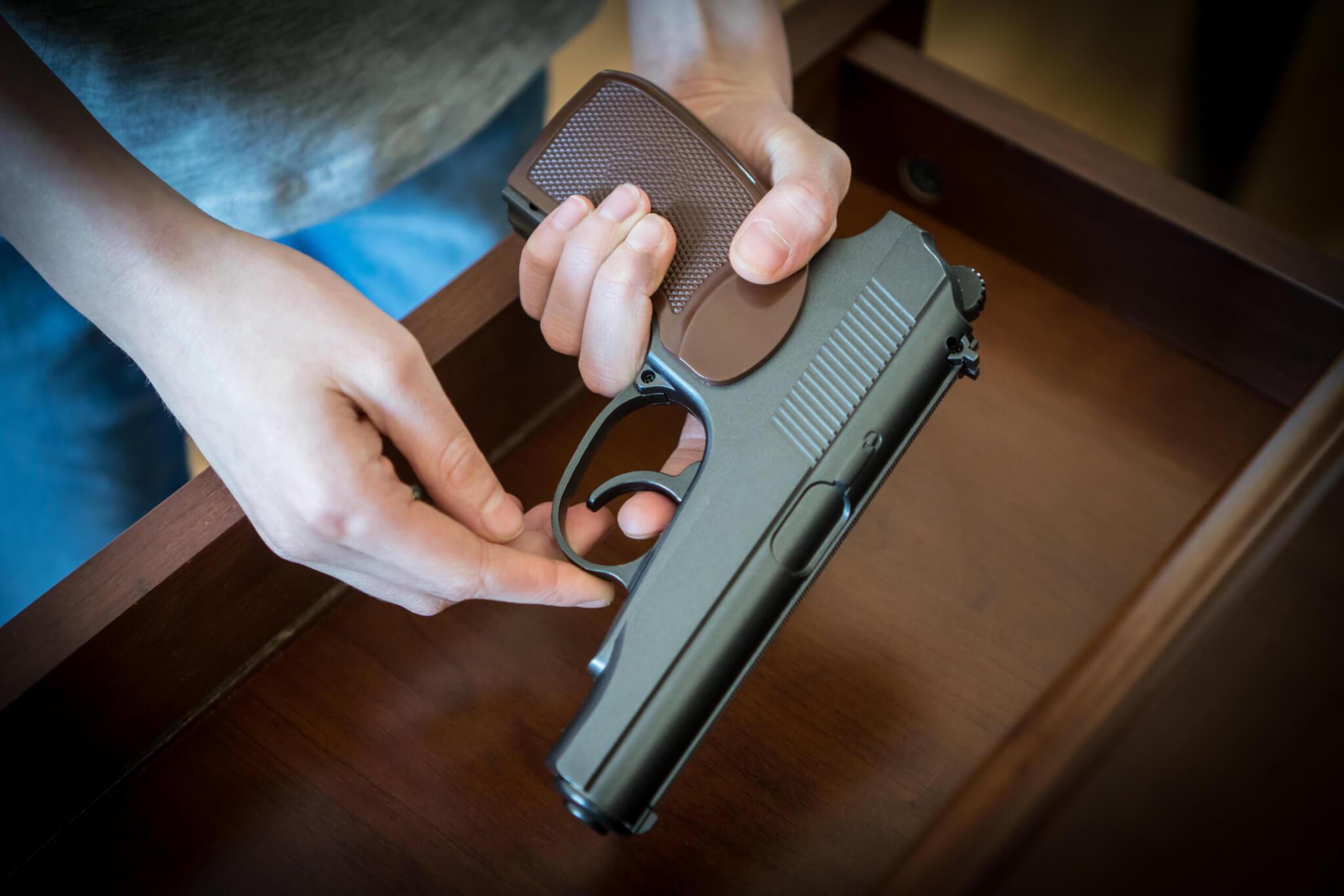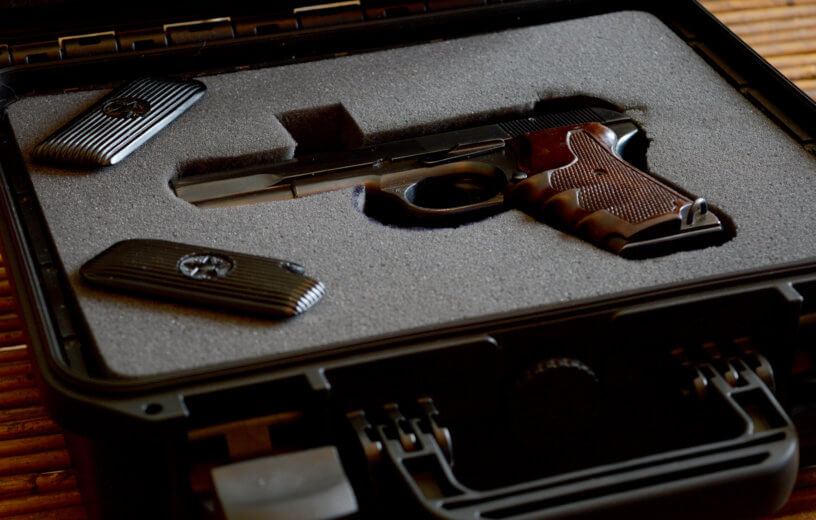EAST BRUNSWICK, N.J. — There are over 400 million privately owned firearms circulating across the United States, and that’s just counting registered guns. As such, one might think that secure firearm storage would be a commonsense pillar of gun safety. However, researchers from Rutgers University have found that a significant portion of gun owners “do not see the value” in properly storing their firearms.
Studies show that secure storage can make a major difference in terms of reducing the risk of suicide and unintentional shootings. Despite that, many gun owners continue to keep at least one of their weapons stored loaded and unlocked. Researchers say most justify this habit by citing the need for quick access in the event of a home invasion. Researchers hypothesize many firearm owners simply may not see value in storing their firearms unloaded, locked up, and separate from ammunition.
Now, researchers at the New Jersey Gun Violence Research Center at Rutgers University collected a representative sample from five diverse states in mid-2022 and then assessed if firearm owners who report storing their firearms loaded and unlocked perceive less utility in specific storage practices when it comes to preventing firearm theft, unintentional shootings, and suicide.
“The most common reason for owning a firearm is protection at home, so many firearm owners view their firearms as tools to have on the ready in case of home invasion,” says Michael Anestis, executive director of the New Jersey Gun Violence Research Center at Rutgers and lead author of the study, in a media release.

More specifically, this project saw researchers survey a sample of English-speaking adults from five states (New Jersey, Minnesota, Mississippi, Colorado, and Texas). The team chose those states because they vary widely from one another geographically, politically, and culturally — and all have broadly different firearm policies and rates of gun violence.
Next, researchers selected a total of 941 gun owners in order to determine whether those who typically store at least one firearm loaded and unlocked (23.6% of firearm owners) see less value in specific firearm storage practices.
This approach led researchers to conclude that firearm owners generally viewed most secure firearm storage practices as more effective at preventing suicide and unintentional shootings than preventing firearm theft. When it comes to both firearm theft prevention and suicide prevention, owners who reported storing their firearms loaded and unlocked saw less value in storing firearms unloaded, away from ammunition, in a locked location (a gun safe) and with an installed locking device (a cable lock). For unintentional shootings, those who stored their firearms loaded and unlocked perceived less value in storing firearms in locked locations.
“If firearm owners are unaware of the suicide prevention value of secure firearm storage practices, it makes sense that they opt to have at least one firearm in their home stored loaded and unlocked,” Anestis explains. “The problem is, staging a firearm so it is so quickly accessible dramatically increases the risk for injury and death, so these perceptions are causing firearm owners to put themselves and their families in danger.”
Study authors add these findings are consistent with the notion that many firearm owners do not see suicide, theft, and unintentional shootings as likely occurrences in their own homes. While this may indeed be true for many gun owners, the risk of such outcomes nonetheless remains higher than the risk of an armed home invasion. In other words, numerous firearm owners are making risky storage decisions based on faulty cost-benefit analyses.
“The risk for armed home invasion requiring defense with a firearm is not zero, but it is lower than the risk of suicide and unintentional shootings,” Anestis adds. “If firearm owners are misperceiving the risks associated with securely and unsecurely stored firearms, that means they are making important decisions for their homes and families based upon faulty information.”
“Our findings highlight how important it is to help firearm owners see that, while it is their right not only to own a firearm, but to keep it in their home in a manner that aligns with local laws and their personal values, the decision to store a firearm loaded and unlocked is putting them, their loved ones and their communities at severe risk. As of now, that message is not getting out there the way it should be,” the researcher concludes.
The study is published in the journal Suicide and Life-Threatening Behavior.
You might also be interested in:
- Guns in America: Study reveals ‘troubling’ differences in firearm usage patterns across country
- Best Home Security Systems For 2023: Top 5 Devices Most Recommended By Experts
- Best Dog Breeds For Home Security: Top 5 Protective Pups According To Canine Experts

